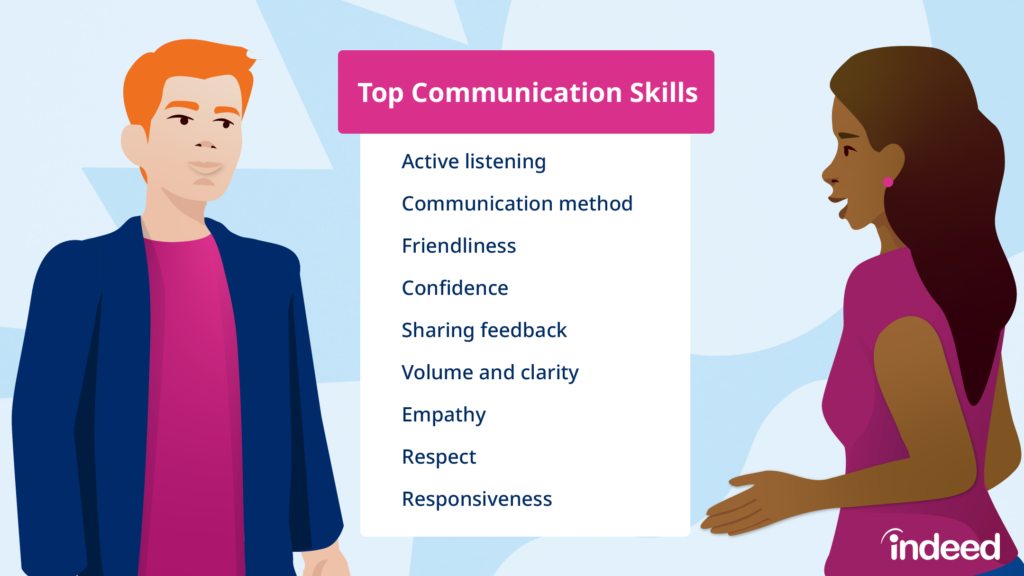Good communication is the backbone of any successful relationship.
Whether you’re in a new relationship or a long-term partnership, open, honest, and empathetic communication can strengthen your bond and bring more joy to your connection.
In this article, we’ll explore the top 10 communication tips to help you and your partner understand each other better, resolve conflicts more effectively, and build a healthier, more loving relationship.
Top 10 Common Misunderstandings in Relationships and How to Fix Them

1. Practice Active Listening
- Focus on What Your Partner Is Saying
Active listening means truly paying attention to your partner, not just waiting for your turn to speak. - Avoid Interrupting
Let your partner finish their thoughts without interrupting; it shows respect and helps them feel heard. - Use Verbal and Non-Verbal Cues
Nod, maintain eye contact, and give small verbal affirmations like “I understand” to show engagement.
2. Use “I” Statements
- Express Feelings Without Blame
Using “I feel…” statements allows you to express your emotions without blaming your partner. For example, “I feel hurt when…” instead of “You make me feel…” - Own Your Emotions
Taking responsibility for how you feel helps reduce defensiveness and leads to more constructive conversations.
3. Show Empathy
- Put Yourself in Their Shoes
Empathy means understanding and validating your partner’s feelings and experiences. - Acknowledge Their Emotions
Simple phrases like, “I can see why you feel that way” can make your partner feel valued and understood.
4. Be Clear and Direct
- Avoid Assumptions
Clear and direct communication prevents misunderstandings and assumptions. - State Your Needs
Don’t assume your partner knows what you want; clearly express your needs and desires.
5. Take Time to Cool Off During Conflicts
- Practice Self-Control
In the heat of the moment, it’s easy to say things we don’t mean. Take a break if needed. - Return with a Calm Mind
Once emotions settle, revisit the conversation calmly and with a clear mind.
Top 10 Effective Ways to Support Your Partner During Tough Times

6. Avoid Bringing Up the Past
- Focus on the Present Issue
Bringing up past issues can distract from the current problem and intensify conflict. - Resolve Issues as They Arise
Address problems as they come, so there’s no need to keep a “scorecard” in your relationship.
7. Practice Patience and Understanding
- Allow Room for Mistakes
Nobody is perfect. Practice patience, understanding, and forgiveness for a more supportive relationship. - Work Together as a Team
Relationships require teamwork; aim for solutions that work for both partners.
8. Give and Receive Feedback Gracefully
- Use Constructive Criticism
Give feedback in a way that’s constructive and positive. Avoid harsh words or criticism. - Be Open to Feedback
Receiving feedback from your partner can be challenging, but it’s essential for personal growth and a healthy relationship.
9. Set Aside Quality Time for Deep Conversations
- Dedicate Uninterrupted Time
Busy lives can interfere with meaningful conversations. Set aside time to talk deeply and without distractions. - Talk About Your Goals and Aspirations
Discussing long-term plans and dreams keeps you connected and aligned as a couple.
10. Show Appreciation and Gratitude Regularly
- Acknowledge the Good
Showing appreciation makes your partner feel valued and loved. - Express Gratitude for Small Gestures
Small gestures of gratitude go a long way in building a positive atmosphere in your relationship.
Top 10 Common Misunderstandings in Relationships and How to Fix Them

Frequently Asked Questions (FAQs)
1. How can I improve communication in my relationship if my partner is not as communicative?
You can encourage open dialogue by practicing active listening and showing appreciation. Model the kind of communication you hope to see.
2. What should I do if my partner and I often misinterpret each other’s words?
Clarify intentions before jumping to conclusions. Ask questions like, “Did you mean…?” to ensure mutual understanding.
3. How do “I” statements help in communication?
“I” statements reduce blame and defensiveness, helping both partners express emotions more constructively.
4. Can effective communication really prevent arguments?
While it may not eliminate all arguments, good communication helps prevent misunderstandings and resolves conflicts faster.
5. What’s the best way to handle arguments without hurting each other?
Take timeouts if needed, avoid harsh words, and revisit the issue with a calm approach.
6. How important is empathy in a relationship?
Empathy is crucial, as it helps partners feel understood, which strengthens the emotional bond.
7. How often should we set aside time for deep conversations?
Aim for regular check-ins, such as weekly or monthly, to stay connected and address any concerns.
8. Can gratitude really make a difference in a relationship?
Yes, gratitude creates a positive atmosphere, making both partners feel valued and appreciated.
9. How do I bring up issues without making my partner feel attacked?
Use “I” statements and focus on your feelings rather than placing blame. This approach fosters a non-confrontational dialogue.
10. What should I do if my partner shuts down during conflicts?
Encourage open communication and suggest discussing issues later when emotions aren’t as heightened.
Conclusion: Building a Stronger Bond Through Communication
Communication isn’t always easy, but with patience and dedication, it can transform your relationship.
By implementing these 10 tips, you and your partner can enjoy a deeper connection, better understanding, and a more loving partnership.
Relationships take effort, but the rewards are worth it. Start applying these tips today, and watch your relationship thrive!